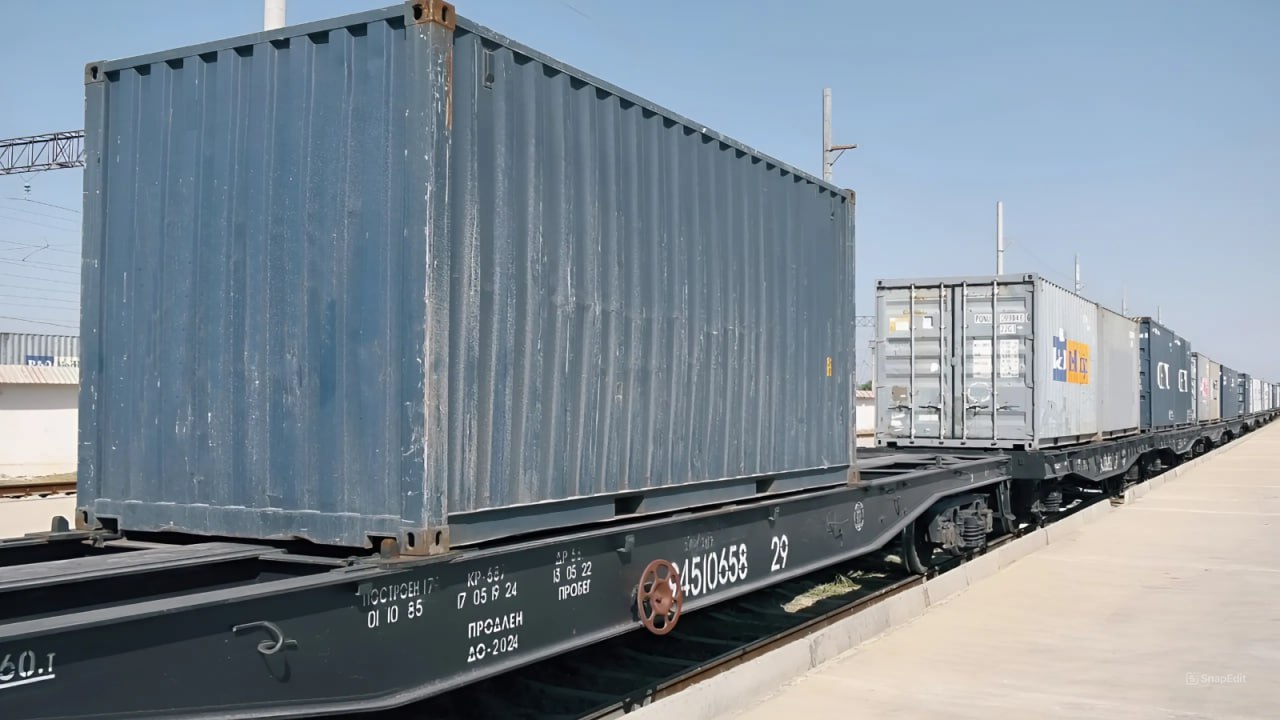2024: Uzbekistans Transport Sector Sets the Stage with Ambitious International Collaborations and Infrastructure Advancements




Uzbekistan's Transportation Revolution: A Comprehensive Overview
Uzbekistan is rapidly establishing itself as a major hub for electric vehicle production, marking an ambitious shift towards sustainable transportation that has captured global attention. This transformation is highlighted by several groundbreaking developments that demonstrate the country's commitment to modernizing its transport infrastructure while aligning with worldwide clean energy trends.
The Chinese firm Lanzhou Guangtong New Energy Automobile Co., Ltd has established a significant agreement to produce 2,000 electric buses annually in Uzbekistan's Andijan region. With a substantial investment of $100 million, this project promises to revolutionize the local transportation sector by offering cleaner, more sustainable alternatives to traditional bus systems. The partnership represents a crucial step in establishing Uzbekistan as a regional leader in electric vehicle manufacturing.
The European Bank for Reconstruction and Development (EBRD) has committed significant financial resources, providing a long-term loan of $49 million specifically designated for electric bus projects in Samarkand and Namangan. These initiatives are designed to establish the essential infrastructure required for widespread electric bus adoption, supported by favorable tax and customs incentives from the Uzbek government. The loan's 18-year term with a three-year grace period demonstrates EBRD's confidence in the transformative potential of these electric mobility initiatives.
The BYD Uzbekistan Factory, operating as a joint venture with China, has successfully launched production of its first electric vehicles from the Jizzakh region. The facility aims to achieve remarkable production capacity of 500,000 vehicles annually through several development phases, representing a total investment valued at $500 million. This manufacturing capability solidifies Uzbekistan's position on the global electric vehicle map while promising substantial economic and environmental benefits for the region.
One of the most ambitious infrastructure projects involves the China-Kyrgyzstan-Uzbekistan railway route, extending from Kashgar in China to Andijan in Uzbekistan through Kyrgyzstan. This strategic railway connection aims to eliminate logistics bottlenecks and significantly enhance regional trade, positioning Uzbekistan as a crucial crossroads between Asian and European markets. The project represents a milestone in international railway cooperation and economic integration.
Uzbekistan has announced plans to begin manufacturing electric trains and subway systems at the prestigious Tashkent facility. These initiatives will commence with suburban electric train models, introducing a new era of rail transport that prioritizes both operational efficiency and environmental sustainability. This development showcases the country's comprehensive approach to modernizing its entire transportation ecosystem.
A tripartite agreement between Uzbekistan, Kazakhstan, and China has established an innovative railway route connecting Xi'an to Tashkent through Kazakhstan. This strategic connection spans approximately 4,486 kilometers and achieves remarkable transit times of just five days, representing a significant breakthrough in rapid cargo transportation and international trade facilitation.
German logistics leader Rhenus SE & Co. has partnered with Uzbekistan Railways to establish a cutting-edge multimodal transport center in Andijan. This ambitious €20 million project will handle up to 300,000 tons of cargo annually by 2026, featuring advanced container loading facilities, streamlined customs operations, and comprehensive freight handling capabilities. The center represents a significant advancement in regional logistics infrastructure.
A comprehensive memorandum of understanding between Chinese Shandong Port Logistics Group Co., Ltd and Uzbekistan's Temiryo'lkargo JSC establishes a framework for optimizing multimodal container transportation. This collaboration emphasizes digital information exchange and leverages extensive port resources to enhance logistics efficiency across international trade routes.
North-Western Cargo International Airlines of China has initiated regular cargo flights from Xi'an to Tashkent using Boeing 757-200 aircraft, with plans to increase flight frequency significantly. Additionally, MyFreighter's partnership with Spain's Air Europa has secured access to eight new global destinations, positioning Tashkent as a regional air freight hub and enhancing international trade connectivity.
Cotton Logistics has acquired a major stake in Uzbekistan's railway container transport company, Uztemiryulkonteyner, through a $15.5 million investment. This strategic acquisition marks a significant step in the privatization of Uzbekistan's transport sector while introducing international expertise and operational efficiency to the domestic supply chain network.
China's engineering giant, CITIC Construction Company, has committed to modernizing Uzbekistan's highway infrastructure, bringing advanced engineering expertise and innovative construction techniques to improve the country's road transport capabilities. This initiative demonstrates the bilateral commitment to leveraging international expertise for comprehensive infrastructure advancement.
Plans for constructing a state-of-the-art cargo terminal at Namangan International Airport include comprehensive facilities for catering, fueling, and advanced cargo handling operations. These enhancements reflect Uzbekistan's strategic vision to become a leading global hub for efficient cargo operations and international transportation services.
Pakistan's participation in establishing a multimodal corridor connecting Central and South Asia represents a transformative opportunity for Uzbekistan to access Indian Ocean ports. This corridor serves as a crucial trade lifeline, creating new pathways for seamless international commerce and extending Uzbekistan's reach to strategic maritime gateways.
Growing cooperation with European partners, particularly Latvia, demonstrates Uzbekistan's expanding role in Eurasian trade networks. New agreements enable Uzbek enterprises to utilize Latvia's port infrastructure, facilitating enhanced trade relations between Uzbekistan and European Union markets while diversifying international commercial partnerships.
These comprehensive transportation and infrastructure initiatives represent more than mere construction projects; they constitute strategic pathways to economic prosperity and regional integration. Through international collaboration, significant financial investments, and innovative technological adoption, Uzbekistan is systematically transforming its transportation sector into a modern, efficient, and sustainable network that serves both domestic needs and international trade requirements. The country's multifaceted approach demonstrates its commitment to becoming a leading transportation hub in Central Asia while contributing to global sustainability objectives.

Comments